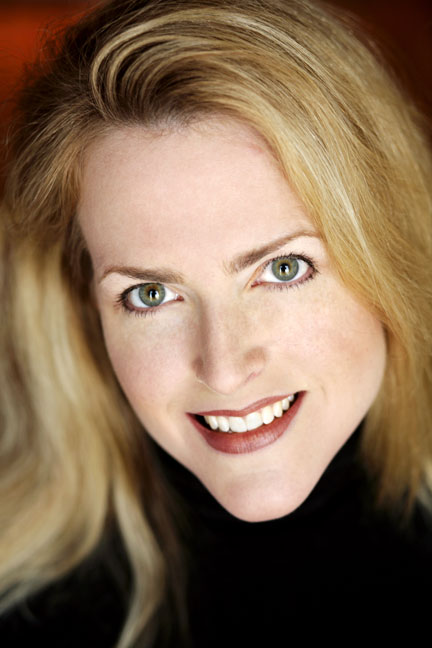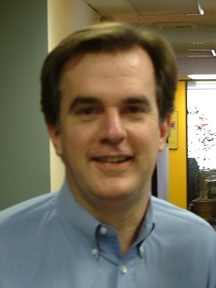Did you think you had to curb your wanderlust and settle down before you could enter the public relations field? International PR is one way you can feed your interest in travel and culture while still getting a paycheck doing the public relations work you enjoy; but how can you, a new public relations professional, tap into the international PR scene?
Next week, the International Public Relations Section of PRSA is hosting a teleseminar specifically designed to help PR newbies get a foot in the international door. Jim Holtje (Senior Manager of Leadership Communications for Siemens Corp) and three others will share their Tips to Breaking into International PR on Wednesday September 16.
Holtje was kind enough to give us a preview of his experience in international PR, including how he started on the international track and what advice he’d give newbies who want to break in. If you’d like to hear more about international PR and how to break in, register for the teleseminar–Oh, and don’t put it off for too long; if you want to dial in to the live event, you’ll need to register by this Friday!
How did you break into international PR?
I began studying foreign languages in middle school and continued through high school and college. In college, I traveled a lot to Europe, taking advantage of cheap student airfares, Eurail passes, sometimes sleeping on friends’ floors to save money. I had also gotten some practical journalism skills working as the features editor at New York University’s student newspaper, The Washington Square News, and worked on a PBS television program. After NYU, I got my M.A. at Columbia University in international affairs and economics. At first, I wanted to work for the State Department but ended up in a private sector career.
My professional career started out in international political consulting working on a 1992 presidential campaign in South Korea. I then worked for a number of PR agencies and consultancies doing international PR for Chrysler, DaimlerChrysler, Wal-Mart, Eli Lilly, Deloitte, Deutsche Post, and others in Washington, D.C. and New York. I started working at Siemens USA seven years ago including a three-year stint at the Munich headquarters as the chief English-language speechwriter. As far as international goes, I absolutely love it. I can’t imagine doing anything else!
What skills are especially important in international PR?
Most international PR pros are often generalists who have a tremendous passion for the world beyond their immediate borders. That passion could come from previous travels or living overseas or just plain “wanderlust.” Either way, they enjoy working and dealing with the world beyond their immediate horizons.
Personally, I think the skills that count most include foreign language ability; hard-core PR skills, including writing and pitching; as well as empathy for others who are not always like you culturally or linguistically. Last but not least, flexibility and patience. You have to be ready to roll with the punches in the international arena. International PR is not always seamless or easy. A lot can get “lost in translation.” But that’s the challenge—and for me, that’s what makes the work eternally interesting.
What’s a typical day when you work in international public relations?
There probably is no “typical” day. A lot depends on where you’re working and whom you’re working for. For example, when I worked as a speechwriter at Siemens’ global headquarters in Germany, we had to write speeches for our CEO to deliver in China, India, Brazil, Egypt, Russia, etc.
That meant quickly getting up to speed on our businesses there, plus learning what would work—or not work—culturally. You constantly have to strike a balance between what your core corporate message is while keeping in mind what foreign audiences are looking for or expect.
Typical? Not likely. Fascinating? Always.
What are you most excited about talking about during the Sept 16 telesem?
I’m excited that we have such great guests from the corporate, agency, and not-for-profit worlds who can give New Pros some real-world advice about international PR. Real world advice–not theory. This is especially valuable in a down economy when people are looking for ways to distinguish themselves in a tough marketplace.
Anita Larsen at Unilever; Robin Kim at Burson-Marsteller in London; and Blair Palese in Australia who used to head Greenpeace PR in London; all bring practical experience to the table that New Pros can benefit from. I’m looking forward to a very lively discussion and to participants getting some real value from the experience.
My hope is that it that the teleseminar ends up changing a few career. It will be well worth the hour investment.
What advice do you have for new pros who are interested in breaking into international PR?
The panelists on September 16 will have their own tips. Here’s a sneak peak at mine:
1) Travel. It can change your life.
2) If you’re already in PR and working at an agency, seek out either foreign clients or large American clients with operations overseas. Large global PR agencies also have opportunities overseas.
3) If you work for a foreign corporation, look for ways to work at the company’s overseas headquarters. If you work for an American multinational, find ways to work at their foreign affiliates.
4) If you’ve haven’t already learned a foreign language, give it a try. If you already speak one, improve your skills. You don’t have to be perfect, but you should at least make an effort.
5) Don’t neglect your core PR skills: writing, pitching, problem solving.
6) My advice no matter what you do in PR: Network, network, network…
—
JIM HOLTJE will be one of the panelists during “Stand out in a down economy: Tips for breaking into international pr”, a PRSA teleseminar. The event will be 1 hour long, mid-day Wednesday, September 16. For more information and to register, go to the event site.

 Next week, on Wednesday, September 30, Mary Beth West will be telling new PR pros how to generate opportunity and avoid common mistakes in the teleseminar,
Next week, on Wednesday, September 30, Mary Beth West will be telling new PR pros how to generate opportunity and avoid common mistakes in the teleseminar, 